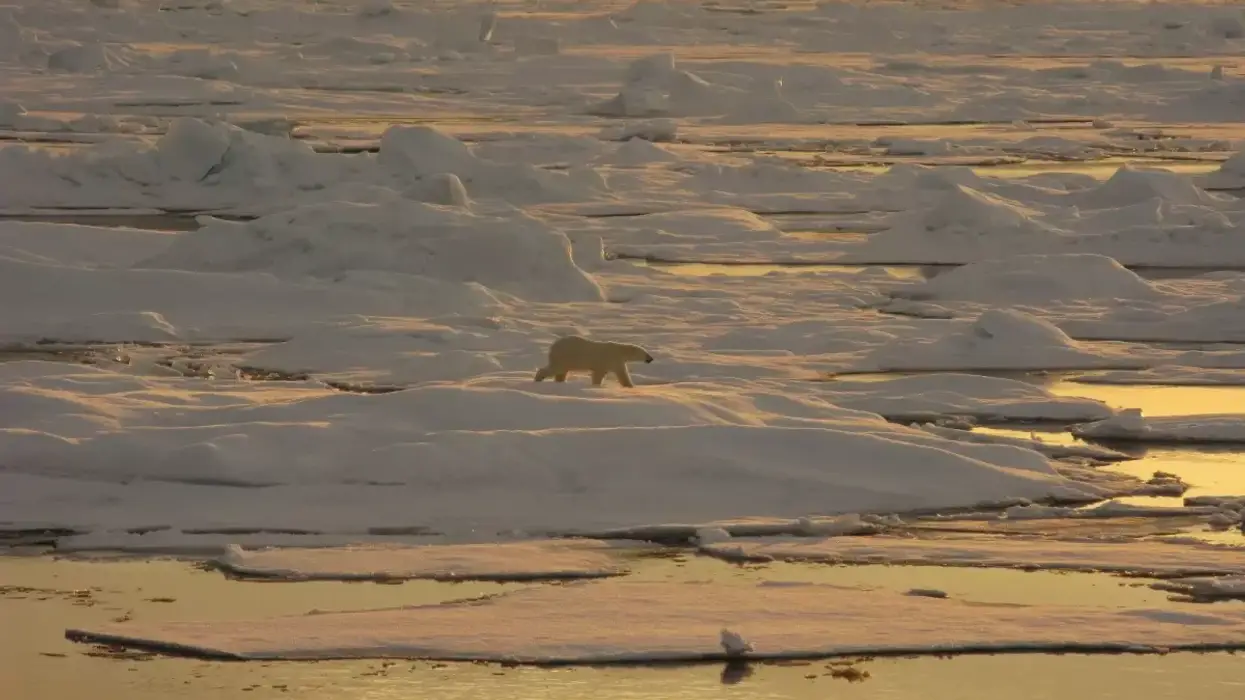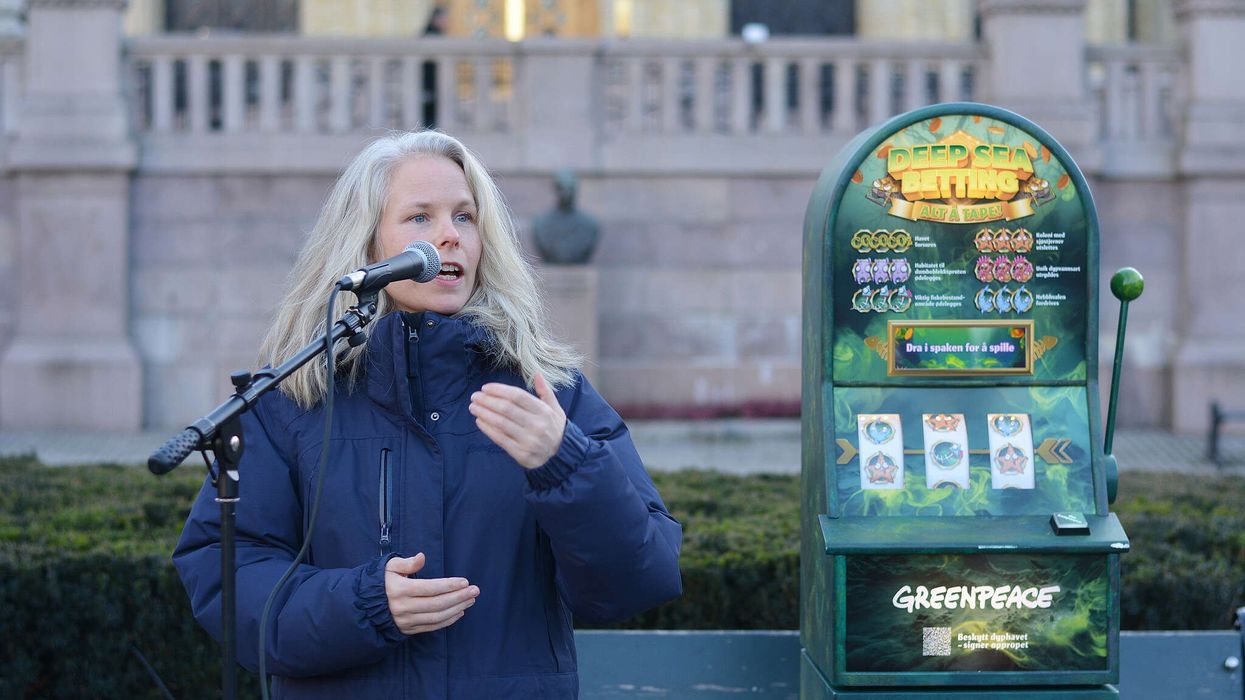"Today marks a monumental victory for the ocean, as the SV Party in Norway has successfully blocked the controversial plan to issue deep-sea mining licenses for the country's extended continental shelf in the Arctic," Steve Trent, CEO and founder of the Environmental Justice Foundation,
said in a statement. "This decision is a testament to the power of principled, courageous political action, and it is a moment to celebrate for environmental advocates, ocean ecosystems, and future generations alike."
"Today, thanks to the SV Party and all those around the world who spoke up against this decision, the ocean has won. Now, let's ensure this victory lasts."
Norway sparked outrage in January when its parliament
voted to allow deep-sea mining exploration in a swath of its Arctic waters larger than the United Kingdom. Scientists have warned that mining the Arctic seabed could disturb unique hydrothermal vent ecosystems and even drive species to extinction before scientists have a chance to study them. It would also put additional pressure on all levels of Arctic Ocean life—from plankton to marine mammals—at a time when they are already feeling the impacts of rising temperatures and ocean acidification due to the burning of fossil fuels.
"The Arctic Ocean is one of the last pristine frontiers on Earth, and its fragile ecosystems are already under significant stress from the climate crisis," Trent said. "The idea of subjecting these waters to the destructive, needless practice of deep-sea mining was a grave threat, not only to the marine life depending on them but to the global community as a whole."
"Thankfully, this shortsighted and harmful plan has been halted, marking a clear victory in the ongoing fight to protect our planet's blue beating heart," Trent continued.
In June, Norway announced that it would grant the first exploratory mining licenses in early 2025. However, this has been put on hold by the agreement with the SV Party.
"This puts a stop to the plans to start deep-sea mining until the end of the government's term,” party leader Kirsti Bergstø said, as
The Guardian reported.
Norway next holds parliamentary elections in September 2025, so no licenses will be approved before then.
The move comes amid widespread opposition to deep-sea mining in Norway and beyond. A total of
32 countries and 911 marine scientists have called for a global moratorium on the practice. More than 100 E.U. parliamentarians wrote a letter opposing Norway's plans specifically, and the World Wide Fund for Nature (WWF) has sued to stop them.
"This is a major and important environmental victory!" WWF-Norway CEO Karoline Andaur
said in a statement. "SV has stopped the process for deep seabed mining, giving Norway a unique opportunity to save its international ocean reputation and gain the necessary knowledge before we even consider mining the planet's last untouched wilderness."
Haldis Tjeldflaat Helle, the deep-sea mining campaigner at Greenpeace Nordic, called the decision "a huge win."
"After hard work from activists, environmentalists, scientists, and fishermen, we have secured a historic win for ocean protection, as the opening process for deep-sea mining in Norway has been stopped," Helle
said in a statement. "The wave of protests against deep-sea mining is growing. We will not let this industry destroy the unique life in the deep sea, not in the Arctic nor anywhere else."
However, Norway's Arctic waters are not entirely safe yet.
Prime Minister Jonas Gahr Stoere, of the Labour Party,
told TV2, on Sunday, "This will be a postponement."
The government said that other work to begin the process of deep-sea mining, such as drafting regulations and conducting environmental impact surveys, would move forward. Norway is currently governed by the Labour and Center parties. The two parties leading in polls for September's elections—the Conservatives and Progress Party—also both back deep-sea mining, according toReuters.
"If a new government attempts to reopen the licensing round we will fight relentlessly against it," Frode Pleym, who leads Greenpeace Norway, told
Reuters.
Other environmental groups tempered their celebrations with calls for further action.
Trent of the Environmental Justice Foundation said that "while today is a cause for celebration, this victory must not be seen as the end of the struggle."
"We urge Norway's government, and all responsible global actors, to make this a lasting victory by enshrining protections for the Arctic Ocean and its ecosystems into law, and coming out in favor of a moratorium or ban on deep-sea mining," Trent added. "It is only through a collective commitment to sustainability and long-term stewardship of our oceans that we can ensure the health of the marine environment for generations to come."
Trent concluded: "Today, thanks to the SV Party and all those around the world who spoke up against this decision, the ocean has won. Now, let's ensure this victory lasts."
Andaur of WWF said that this was a "pivotal moment" for Norway to "demonstrate global leadership by prioritizing ocean health over destructive industry."
As WWF called on Norway to abandon its mining plans, it also urged the nation to reconsider its exploitation of the ocean for oil and gas.
"Unfortunately, we have not seen similar efforts to curtail the Norwegian oil industry, which is still getting new licenses to operate in Norwegian waters, including very vulnerable parts of the Arctic," Andaur said. "Norway needs to explore new ways to make money without extracting fossil fuels and destroying nature."
Greenpeace also pointed to the role Norway's pause could play in bolstering global opposition to deep-sea mining.
"Millions of people across the world are calling on governments to resist the dire threat of deep-sea mining to safeguard oceans worldwide," Greenpeace International Stop Deep-Sea Mining campaigner Louisa Casson said. "This is a huge step forward to protect the Arctic, and now it is time for Norway to join over 30 nations calling for a moratorium and be a true ocean champion."




